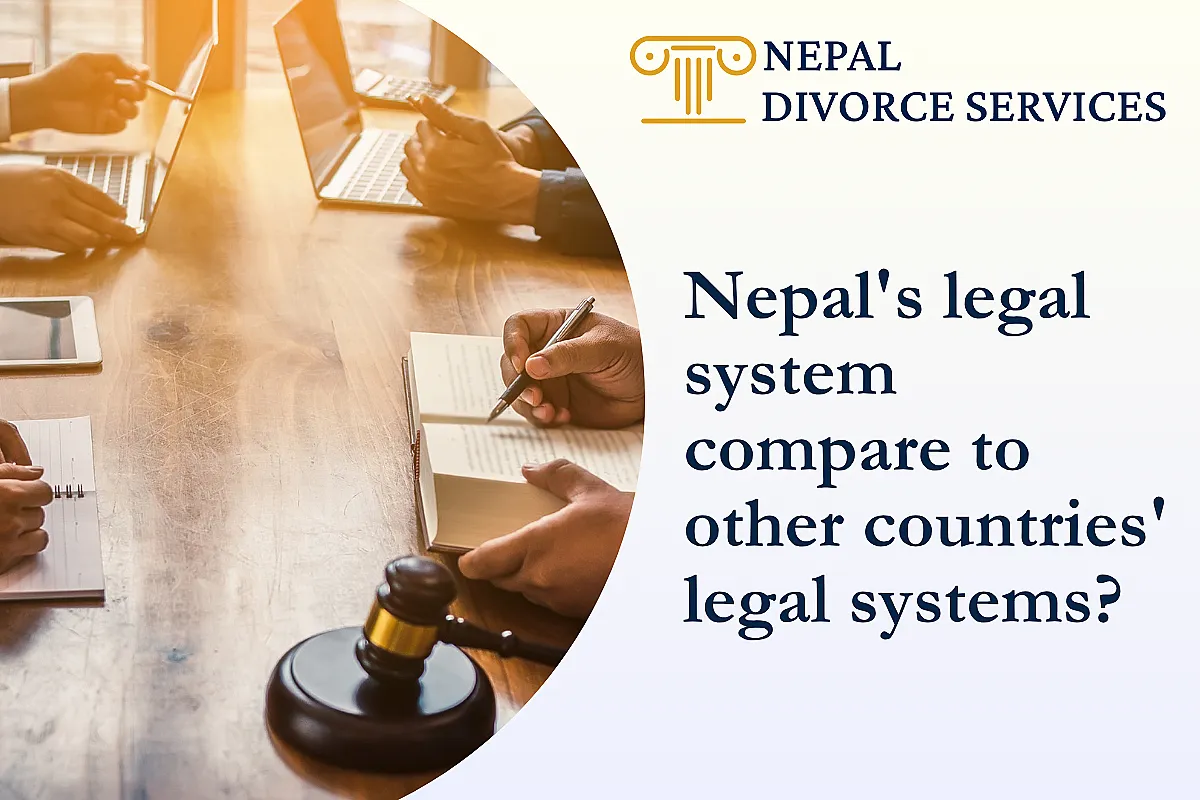Tag : Global Law Firm
Divorce Process for International Couples in Nepal
Divorce is a legal process that dissolves a marriage contract between two individuals. When it comes to international couples, the divorce process can be more complex due to differences in laws and regulations. Nepal, being a popular destination for international couples, has its own set of rules and regulations for divorce proceedings. In this article, we will discuss the divorce process for international couples in Nepal.
Resolving Disputes in Nepal
Resolving Disputes in Nepal is a vital topic that affects the rights and interests of individuals, businesses, and organizations. According to my search, disputes in Nepal can be resolved through various methods, such as litigation, arbitration, mediation, negotiation, etc. The choice of the method depends on the nature, complexity, and urgency of the dispute, as well as the preference and agreement of the parties involved.
Real Estate Law in Nepal
Real estate law in Nepal is a complex and diverse topic that covers various issues and aspects of property rights, transactions, and disputes. This article provides an overview of the main issues and aspects of real estate law in Nepal, such as ownership, transfer, valuation, and dispute resolution. It also discusses the sources and authorities of real estate law in Nepal, such as the Constitution of Nepal, statutory laws, customary laws, and judicial decisions. These sources and authorities provide the legal basis and principles for the regulation and administration of property rights, transactions, and disputes in Nepal. The article also addresses the challenges and problems related to real estate law in Nepal, such as lack of proper documentation, registration, measurement, valuation, management, maintenance, awareness, education, coordination, cooperation, transparency, accountability, access, affordability, capacity, competency, enforcement, and implementation. It also suggests some possible solutions and recommendations to overcome these challenges and problems, and to ensure the protection, promotion, and fulfillment of the real estate law in Nepal.
Nepal's legal system compare to other countries' legal systems?
These are legal systems that are based on judicial decisions rather than written statutes. They are prevalent in countries that were influenced by British rule, such as the United States, the United Kingdom, Canada, Australia, and India. Common law systems rely on the doctrine of precedent, which means that courts follow the rulings of previous cases that are similar to the current one. Common law systems are also adversarial, which means that each side presents its own evidence and arguments to persuade the judge or jury.
Types of Court In Nepal
Nepal is a country with a rich and diverse legal culture that reflects its history, geography, and society. The Nepali judicial system consists of various types of courts and judicial bodies that exercise the powers relating to justice by the Constitution, laws, and recognized principles of justice. In this article, we will explore the types of courts in Nepal, their jurisdiction, composition, procedure, and functions. We will also discuss how the Nepali courts handle family-related issues, such as divorce, separation, child custody, and alimony, and how you can get the best legal advice and representation from Nepal Divorce Services, the leading divorce law firm in Nepal.
The Dos and Don'ts of Negotiating a Legal Settlement in Nepal
Negotiating a legal settlement is a process of resolving a dispute or a claim through dialogue, compromise, and agreement, without going to trial. Negotiating a legal settlement can be beneficial for both parties, as it can save time, money, and stress, and result in a mutually satisfactory outcome. However, negotiating a legal settlement can also be challenging, as it involves various legal, financial, and emotional factors, and requires skill, patience, and strategy.
Things You Should Know About Divorce In Nepal
Divorce in Nepal is regulated by Chapter 3 of the National Civil Code, 2017 (Muluki Civil Code 2074), which sets out a clear and structured legal process for dissolving a marriage. The law explains how a divorce can be obtained, defines the rights and duties of both spouses, and includes detailed provisions on property division, maintenance, and child protection. Its primary objective is to ensure fairness in divorce proceedings while safeguarding the interests of women and children.
Corruption Laws And Framework In Nepal(2080)- Latest Legal Provisions
Corruption is a serious problem that undermines the rule of law, democracy, and development in Nepal. Corruption is defined as "offences punishable under Chapter -2" of the Prevention of Corruption Act, 2059 (2002 A.D.) which include bribery, embezzlement, abuse of authority, money laundering, and obstruction of justice. Corruption affects various sectors and levels of the society, such as politics, administration, judiciary, security, education, health, and business.
Arbitration Act of Nepal: Key Insights on Arbitration Law and Practices
This article offers a comprehensive overview of the Arbitration Act of Nepal, delving into the legal framework and practical aspects of arbitration proceedings in the country. From the initiation of arbitration and appointment of arbitrators to the enforcement of domestic and foreign awards, we cover the essential aspects of the law. Additionally, you'll find a breakdown of arbitrator qualifications, decision-making timelines, court intervention, and key landmark cases that shaped Nepalese arbitration. Whether you're a legal professional, business owner, or someone seeking arbitration, this guide provides actionable insights into arbitration law in Nepal.









